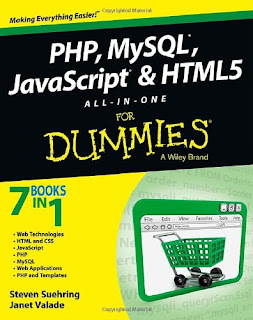Introduction to Search Engine Optimization (SEO)
 A popular trend in today's online world is Search Engine Optimization or SEO. The basic goal of this growing field is "improving and promoting a web site in order to increase the number of visitors the site receives from search engines." So that when certain key words are input, the site appears closer to the top of the links provided. SEOmoz provides an introduction book of which I will review in a series of posts about the basics of SEO. This post covers the first three chapters.
A popular trend in today's online world is Search Engine Optimization or SEO. The basic goal of this growing field is "improving and promoting a web site in order to increase the number of visitors the site receives from search engines." So that when certain key words are input, the site appears closer to the top of the links provided. SEOmoz provides an introduction book of which I will review in a series of posts about the basics of SEO. This post covers the first three chapters.SEO is key to accessing consumers and followers. Being findable means more views to your page which is key to accessing a broader audience, and potentially attracting revenue. SEO can be reverse engineered to design a website to target consumers based on the words they type into a search engine, or it can be used to simply boost exposure and publicity which may turn into revenue. Regardless of how it is done or how it works, we all know from personal experience that appearing first in a search means we're more likely to be clicked and our content viewed and used.
Search engines work by utilizing two core concepts, crawling and indexing. These ideas are initially accessed through links which "crawlers" find by going through literally billion of pages and documents. This information is then indexed in massive hard drives in databases around the world which is then mined when a user types in their search query into a site such as Google.
 Google, Bing, and Yahoo are then designed to regurgitate two things, relevant information and important information. In other words they reduce down search results to links that are relevant and then ranks them in order of deemed importance. Relevance is seen as finding a correlation between the search query and the words on the pages. Important is more determined by popularity. Page views, shared links, ect. all contribute to a pages rank, but in the end these factors are plugged into complex algorithms composed of a collection of ranking factors.
Google, Bing, and Yahoo are then designed to regurgitate two things, relevant information and important information. In other words they reduce down search results to links that are relevant and then ranks them in order of deemed importance. Relevance is seen as finding a correlation between the search query and the words on the pages. Important is more determined by popularity. Page views, shared links, ect. all contribute to a pages rank, but in the end these factors are plugged into complex algorithms composed of a collection of ranking factors.
These sites provide some basic tips on how to achieve a higher rank, such as having static or perma-links, descriptive content as to what your page is about (including words that are specifically searched for), and not embedding information in images and other complex rich media as the crawlers are unable to mine. Designing a page for the typical searcher is also important to improving rankings. By providing a positive experience for the user the site is more likely to get increasingly popular, shared, and hence important to the index.
Users can be lumped into three categories, those searching to "do", "know", and "go". Those who are looking to do are part of the group that wants to find a link that will provide them with an activity, access to tickets, find a song on youtube, shop, or otherwise use a service. Knowing means doing rudimentary research on a topic, be it finding a restaurant, how to remove a stain, or who the 14th president was. Those looking to go are searchers who want to go to a specific site, such as Facebook or this blog. By ensuring your site provides direct and simple access to these types of searchers will ensure a better experience for your viewers and increase popularity, driving up search rankings. This type of web page will also mean easier access for robots and crawlers to read your page and properly index the page creating more access as well.
Loads of research cited in the article support the argument that search engine use is increasing, drives economic activity and is replacing other sources such as the yellow pages, being listed in the first few hits is crucial to getting attention from users, and that being listed in the first few links is also associated with increased trust towards how that page stands in terms of relevance and importance.
However, search engine algorithms have their fair share of short comings. Crawlers have problems reading images and other non-text content, login and form pages prevent them from accessing content behind them, and a lack of perma-links and poor link structure renders potential useful content as unimportant. Matching content to search queries is another short coming to the algorithms; posting content on how to catch fish, instead of fishing may result in oversight in indexing, posts using word play or puns is also an effective way to mislead and confuse crawlers. Further, if a site doesn't have any other pages linking to the content there-in, it may be listed as unimportant, despite any relevance it might have. Thereby content that is shared becomes more important and higher ranked.
Though SEO has been around for some time now, it continues to be an important and growing field as sites compete more and more for space at the top of a results page. Understanding this is crucial to promoting pages and drawing attention.
Loads of research cited in the article support the argument that search engine use is increasing, drives economic activity and is replacing other sources such as the yellow pages, being listed in the first few hits is crucial to getting attention from users, and that being listed in the first few links is also associated with increased trust towards how that page stands in terms of relevance and importance.
However, search engine algorithms have their fair share of short comings. Crawlers have problems reading images and other non-text content, login and form pages prevent them from accessing content behind them, and a lack of perma-links and poor link structure renders potential useful content as unimportant. Matching content to search queries is another short coming to the algorithms; posting content on how to catch fish, instead of fishing may result in oversight in indexing, posts using word play or puns is also an effective way to mislead and confuse crawlers. Further, if a site doesn't have any other pages linking to the content there-in, it may be listed as unimportant, despite any relevance it might have. Thereby content that is shared becomes more important and higher ranked.
Though SEO has been around for some time now, it continues to be an important and growing field as sites compete more and more for space at the top of a results page. Understanding this is crucial to promoting pages and drawing attention.


Comments
Post a Comment